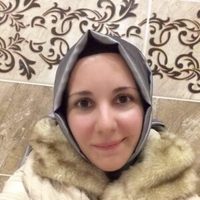
Salih Bıçakcı
Dr. Salih Bıçakcı is Associate Professor of International Relations at Kadir Has University, Istanbul. Bıçakcı received his PhD from Tel Aviv University in Israel in 2004. Dr. Bıçakcı took part in numerous academic projects on identity, security and terrorism. He has thought classes in several national and international universities on the Middle East in International Politics, International Security, International Relations Theory and Turkish Foreign Policy. He has made evaluations and presentations on cyber security at the NATO Defense Against Terrorism Centre of Excellence (COEDAT), NATO Command and Control Centre of Excellence (C2COE) and NATO Maritime Security Centre of Excellence. He has though Cyber Security and Middle Eastern Security courses at the Armed Forces Academy of the Turkish War College. He has presented on international security and cyber security in several international academic conferences.
Address: Kadir Has Universitesi,
Cibali, Istanbul, Turkey
Address: Kadir Has Universitesi,
Cibali, Istanbul, Turkey
less
Related Authors
ismail Kervankıran
Suleyman Demirel University
mehmet fatih bağmancı
Suleyman Demirel University
Semih ÇAYAK
Marmara University
Ali Murat Kırık
Marmara University
Gökhan Topçu
Hacettepe University
Nurcin Ileri
International Institute of Social History
Begum 🐝 Burak, PhD
Independent Researcher
InterestsView All (54)









Uploads
Papers by Salih Bıçakcı
With the closure of Instagram in August 2024, a deep silence emerged in Turkey; the problem was solved in eight days. But there are many issues left to think about. Over 5 billion people in the world have access to social media. Facebook, YouTube and Instagram are the top three among all platforms, respectively. Turkey ranks 20th among 42 countries with 6 hours and 57 minutes of internet use. 2 hours and 44 minutes are spent on social media platforms.
are not visible as services, but they are essential for communicating various platforms and components in our daily lives. The introduction of digitalization and hyperconnectivity have altered CI management systems
malevolent attackers an unprecedented opportunity to test cybersecurity systems and exploit vulnerabilities.
The pandemic has demonstrated the need for the dependable and continuous operation of electricity, natural gas, oil, water and wastewater systems, and telecommunications. His chapter provides an overview of a critical infrastructure’s technical layers and systems and its potential organizational vulnerabilities to cyberattacks related to the human workforce and management. He highlights the various categories of threat actors (opportunistic attackers, competitors, insider threats, advanced persistent threats, and hacktivists) and concludes with an overview of recent primary attack types that threat actors employ to exploit vulnerabilities
in critical infrastructure.
Turkey is one of the newcomers in the nuclear energy industry, and Turkish Akkuyu NPP has a unique model owned by an international consortium. Since Turkey has limited experience in nuclear energy industry, specific multinational and multicultural characteristics of Turkish Akkuyu NPP also requires further research in terms of the Facility's prospective nuclear security. Yet, the link between “national cultures” and “nuclear security” is underestimated in nuclear security studies. By relying on Hofstede's
national culture framework, our research aims to address this gap and explore possible implications of cross-national cultural differences on nuclear security. To cope with security challenges in the age of hybrid threats, we propose a security management model which addresses the need for cyber-physical security integration to cultivate a robust nuclear security culture in a multicultural working environment
With the closure of Instagram in August 2024, a deep silence emerged in Turkey; the problem was solved in eight days. But there are many issues left to think about. Over 5 billion people in the world have access to social media. Facebook, YouTube and Instagram are the top three among all platforms, respectively. Turkey ranks 20th among 42 countries with 6 hours and 57 minutes of internet use. 2 hours and 44 minutes are spent on social media platforms.
are not visible as services, but they are essential for communicating various platforms and components in our daily lives. The introduction of digitalization and hyperconnectivity have altered CI management systems
malevolent attackers an unprecedented opportunity to test cybersecurity systems and exploit vulnerabilities.
The pandemic has demonstrated the need for the dependable and continuous operation of electricity, natural gas, oil, water and wastewater systems, and telecommunications. His chapter provides an overview of a critical infrastructure’s technical layers and systems and its potential organizational vulnerabilities to cyberattacks related to the human workforce and management. He highlights the various categories of threat actors (opportunistic attackers, competitors, insider threats, advanced persistent threats, and hacktivists) and concludes with an overview of recent primary attack types that threat actors employ to exploit vulnerabilities
in critical infrastructure.
Turkey is one of the newcomers in the nuclear energy industry, and Turkish Akkuyu NPP has a unique model owned by an international consortium. Since Turkey has limited experience in nuclear energy industry, specific multinational and multicultural characteristics of Turkish Akkuyu NPP also requires further research in terms of the Facility's prospective nuclear security. Yet, the link between “national cultures” and “nuclear security” is underestimated in nuclear security studies. By relying on Hofstede's
national culture framework, our research aims to address this gap and explore possible implications of cross-national cultural differences on nuclear security. To cope with security challenges in the age of hybrid threats, we propose a security management model which addresses the need for cyber-physical security integration to cultivate a robust nuclear security culture in a multicultural working environment
While the ceasefire temporarily halts hostilities in Gaza, violence persists in the West Bank, highlighting the limitations of diplomatic interventions. The involvement of key regional and international actors—such as Qatar, Egypt, and the United States—underscores the complex web of interests that shape this truce. In Israel, internal political struggles, especially tensions within Prime Minister Netanyahu’s coalition, cast doubt on the ceasefire’s durability. Meanwhile, Hamas, despite experiencing military losses, is trying to establish itself as a governing authority, which complicates post-war governance scenarios. The humanitarian provisions of the ceasefire, including the controlled entry of aid and reconstruction efforts, are precarious and subject to political negotiation and logistical challenges. This analysis argues that the ceasefire is not an endpoint but rather a temporary adjustment in the dynamics of the conflict, with the potential to either stabilize or further destabilize the region, depending on future political and military developments.
https://fikirturu.com/insan/israil-filistin-catismasi-gordion-dugumunu/
http://www.mo.be/analyse/turkije-betaalt-zwaar-af-voor-syrie (original in Dutch)